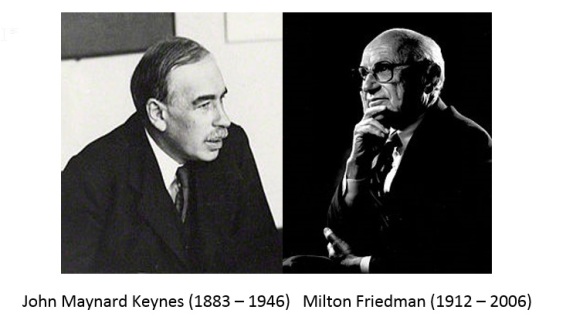Starting from ancient times there were many thinkers and theories in the history of economic thought. The first modern school of economic thought is generally considered as Classical Economy (1776 – 1870). Starting with Adam Smith main founders of classical economy are Jean-Baptiste Say, David Ricardo, Thomas Malthus and John Stuart Mill.
Free markets regulating themselves without any intervention by an “invisible hand” was the basis of classical economics. On the eve of the industrial revolution, Adam Smith’s book The Wealth of Nations, 1776, is usually considered the beginning of classical economics. Land, Labor and Capital, so called factors of production, were among the main discussions of classical economists.
In the classical economics, value of a product was thought to depend on the costs involved in producing that product. Then some economists began to emphasize the perceived value of a good to the consumer, which was the beginning of a new era, Neoclassical Economics (1870 -1940). Change to neoclassical economics can be called as “marginal revolution”, rise of the “economic man”. People having rational preferences, maximizing utility are main pillars of it.
Then, Keynesian Economics (1940 – 1960), supporting interventionist government fiscal policies (government investment in infrastructure) and central bank monetary policies (reduction in interest rates) to stimulate economic demand and growth, led by John Maynard Keynes, become mainstream economic thought. Neoclassical economics dominates microeconomics, and together with Keynesian economics forms the neoclassical synthesis which dominates mainstream economics today.
Milton Friedman advocated an alternative macroeconomic policy called as Monetarism, which become prevalent around 1960’s. Contrary to the Keynesian policies, Friedman argued that laissez-faire (free from restrictions) government policy is more appropriate than government intervention in the economy. Neutral monetary policy oriented toward long-run economic growth with gradual expansion of the money supply was the other main argument.
There are many other theories, schools of thoughts and great names in the history of modern economics. Paul Samuelson, Friedrich Hayek, Joseph Schumpeter, John Galbraith, Thorstein Veblen, James Tobin, Irving Fisher, Robert Solow, John Nash are among the other great names. Paul Krugman, Greg Mankiw, Daron Acemoglu, Steve Levitt will probably be shown in future lists. Finally, here are some quotes from Keynes & Friedman:
John Maynard Keynes:
“The long run is a misleading guide to current affairs. In the long run we are all dead.”
“If you owe your bank a hundred pounds, you have a problem. But if you owe a million, it has.”
“Markets can remain irrational longer than you can remain solvent.”
Milton Friedman:
“Many people want the government to protect the consumer. A much more urgent problem is to protect the consumer from the government.”
“Nothing is so permanent as a temporary government program.”
“I am favor of cutting taxes under any circumstances and for any excuse, for any reason, whenever it’s possible.”
